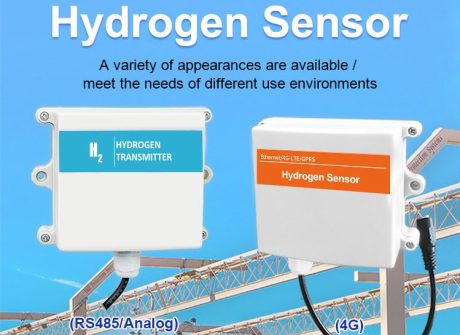Flammable gas detectors are key to scaling the potential of electrolysers and protecting people who want to use electrolysers to safely create hydrogen as a source of energy. An electrolyser works by separating water through electricity into its basic elements of oxygen and hydrogen. From there, the hydrogen can be contained without creating any greenhouse gases.
The basics of hydrogen gas detectors:
Here at International Gas Detectors, our technology is provide protection against gas leaks. Hydrogen is dangerous due to its flammability and lack of taste, colour and smell. With that said, our combustible gas detectors can alert you to dangerous gas levels and are designed for safety. Here is what you need to know about them and electrolyser scalability.

Detection Principle: Hydrogen gas detector utilize various detection principles, including electrochemical sensors, catalytic bead sensors, infrared sensors, and semiconductor sensors. Each type of sensor has its own strengths and limitations in terms of sensitivity, response time, and environmental factors.
Sensitivity: Hydrogen detector are highly sensitive to the presence of hydrogen and can detect even low concentrations to ensure early warning.
Alarm Systems: These detectors have audible and visual alarms that are triggered when the hydrogen concentration exceeds a preset threshold. Some advanced detectors also offer remote notification capabilities for off-site monitoring and response.
Calibration and Maintenance: Regular calibration and maintenance are crucial for ensuring the accuracy and reliability of hydrogen gas detectors. Calibration procedures are usually outlined by the manufacturer and followed to maintain normal function.
Application Areas: Hydrogen detectors have a wide range of applications, including hydrogen refueling stations, battery manufacturing facilities, industrial plants.
Safety Compliance: The use of hydrogen gas detector is often mandated by safety regulations and standards to ensure the protection of personnel. Compliance with relevant safety guidelines is essential for the proper installation, operation, and maintenance of these detectors.
Data Logging and Connectivity: Many modern hydrogen gas detector offer data logging capabilities, allowing for the recording. Some models also feature connectivity options for remote monitoring and data analysis.
Integration with Control Systems: In industrial environments, hydrogen detector can be integrated with control systems to automatically initiate ventilation in the event of a hydrogen leak.
How can Hydrogen Gas Detectors Enhance the Scalability?

The hydrogen detector can be combined with the electrolyzer to provide comprehensive fire and explosion protection. International Gas Detector products have three alarms configured for the lower explosive limit of hydrogen. This double detection is crucial because oxygen enrichment can be toxic. Both the second and third alarms are customizable, not only for hydrogen leaks, but also for the equally important oxygen leaks that occur during electrolysis.
The Benefits of Hydrogen Gas Detector
There are many advantages that come with using gas detectors, especially from our own range of flammable gas sensors.

Benefits include:
A strong longevity without the sensors creating false readings.
Flexible reactivity to all combustive gases through easy calibration.
A focus on flammable gases instead of toxic gas levels.
Shock, vibration and temperature resistance.
